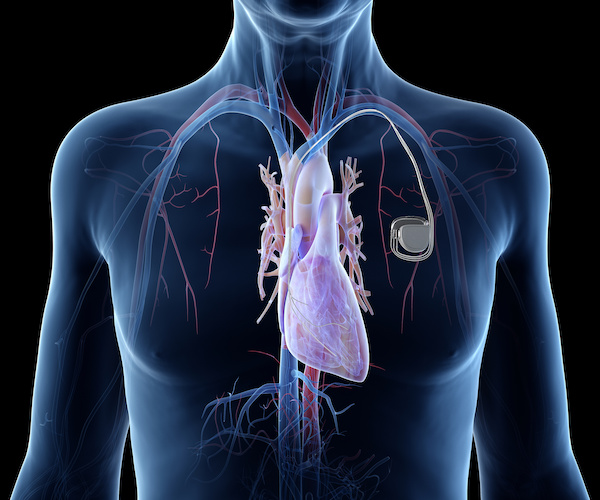If you have a pacemaker, you’re not alone. According to the American Heart Association (AHA), about 1.5 million Americans live with pacemakers, a small device that’s placed under the skin on the chest. It uses electrical pulses to help control your heartbeat. This is important because if your heart beats too slowly, it can cause problems like fainting or dizziness. If your heart beats too quickly, it can cause shortness of breath and chest pain.
Pacemakers are usually recommended for people who have bradycardia (a slow heart rate) or tachycardia (a fast heart rate). They’re also sometimes used to treat heart failure and other heart conditions.
Living with a pacemaker comes with both risks and rewards. For many individuals, having a pacemaker means being able to continue living their lives with much less fear of sudden arrhythmia. There are potential risks associated with pacemakers, such as device malfunctions or infections. It’s not uncommon for people to feel anxious about living with a pacemaker. After all, it is a battery-operated device that is implanted in your chest and helps to regulate your heart rhythm.
Here are some things you should know about living with a pacemaker:
The Average Lifespan of a Pacemaker
Pacemakers are wonderful devices that can improve your quality of life and allow you to live your life to its fullest. The lifespan of a pacemaker is variable and depends on the device and its usage, but it should last between 7-10 years. In some cases, they may last longer than 10 years if well taken care of. It is important to have regular check-ups with your doctor to make sure your device is functioning properly and that the battery is still at a good level and not low, as you will need to have it replaced.
You should also be aware of any new advances in technology. Many newer pacemaker models are now equipped with remote monitoring technology. Doctors can now track pacemakers remotely and receive alerts if there are any issues. This helps to prolong the pacemaker’s life and keep it operating optimally.
Equipment That Can Affect Your Pacemaker
Some of the equipment you may encounter in your daily life may interfere with the function of your pacemaker. It is important to know what can affect your pacemaker and how to best protect it from any interference. These may include:
- Cell Phones and Bluetooth headsets
- Televisions, microwaves, and other electronic devices that emit an electromagnetic field
- Metal Detectors, including those used at airports and other locations for security purposes.
- Magnetic Resonance Imaging (MRI) machines
- Lightning
Exercise With a Pacemaker
Exercise is an important part of heart health regardless of whether or not you have a pacemaker. However, it is important to consult with your physician prior to engaging in any physical activity. Depending on the type and condition of your pacemaker, there may be certain types of exercises or movements that you should avoid in order to reduce any potential risk of complications or damage.
Living with a pacemaker does not mean living a restricted lifestyle; however, understanding the risks associated with having one and taking necessary precautions will maintain optimal heart health and extend the lifespan of your pacemaker.
Traveling With a Pacemaker
The good news is that most people with pacemakers can travel safely, but there are a few things to keep in mind. Always check with your cardiologist before you travel to make sure that your device is in good working order and that you don’t have any restrictions. You should also carry a letter from your doctor detailing your condition and the type of device you have.
Peace of Mind with a Pacemaker
Pacemakers are meant to help you live life to the fullest and do not have to restrict your lifestyle. It is important to maintain physical and mental health and simply having a pacemaker is rarely a reason for a person to spend all of their time at home. It is good to have a system and set of tools in place before an emergency occurs that provides confidence and peace of mind to those with heart conditions requiring a pacemaker to go out and live their lives. One highly regarded free tool is YourHealth’s Essential Care Card (ECC), which allows you to proactively create a digital summary that can speak for you if you can’t. It can display what is important for you to share in an emergency – health conditions, medications, allergies, and other critical information. It also lets you decide to whom to give access to this information. This ensures everyone in your trusted circle knows how to get to your core medical information, needs, and directives from the start. It delivers peace of mind that you will get the right care, safer treatments, and better outcomes in case of an emergency related to a pacemaker or other health incidents, accidents, or emergencies.
key takeaways
According to the American Heart Association (AHA), about 1.5 million Americans live with pacemakers, a small device that’s placed under the skin on the chest. It uses electrical pulses to help control your heartbeat. The average lifespan of a pacemaker is 7-10 years. You can travel and exercise with a pacemaker however you should understand types of equipment.
TheYourHealth team is dedicated to providing helpful insights, resources, guidance and stories about your health and wellness.

